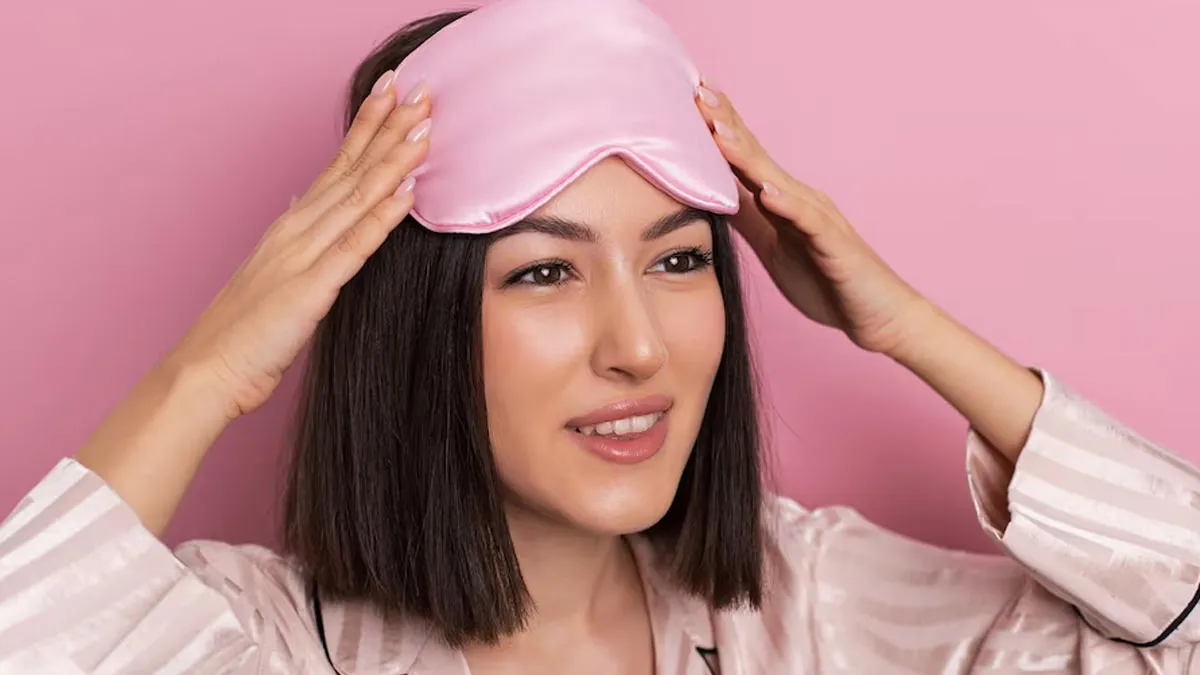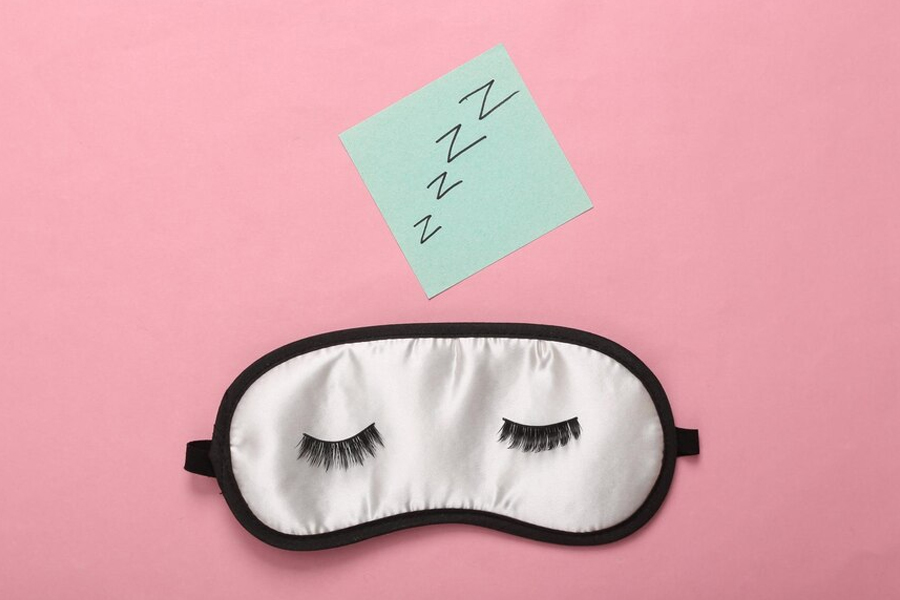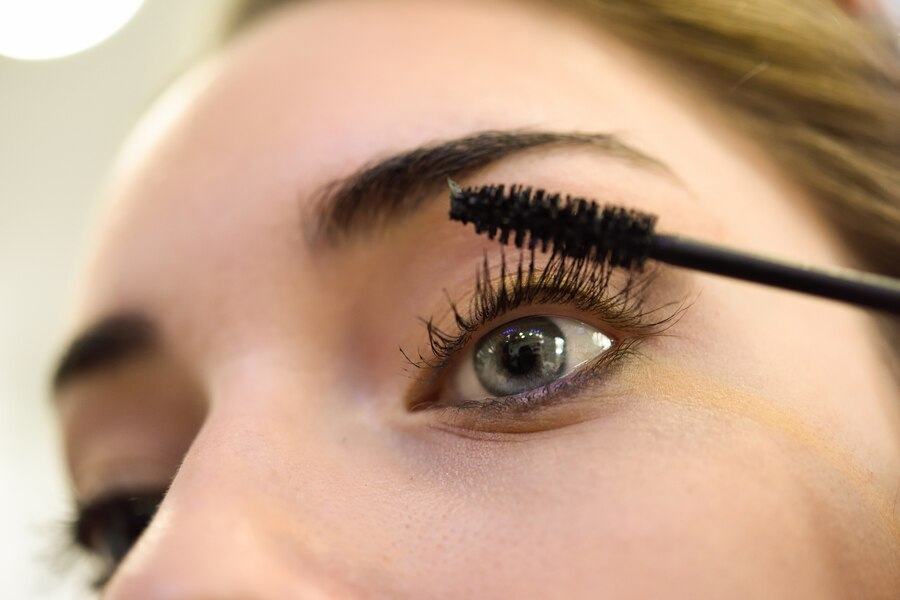
For many, makeup is more than just cosmetics. It boosts confidence and, over time, has become a form of self-expression. However, when we use beauty products, it is crucial to be mindful of the products we use and how we use them. Mascara, for instance, is an integral part of the makeup routine, which helps us achieve darker, more dramatic lashes. However, if not handled with care, it can pose significant risks to eye health.
Table of Content:-
To understand these risks and learn how to safely remove mascara, we spoke with Dr Veena Parveen, Dermatologist and Head Medical Advisor (South) at Kaya Limited.
Also Read: Influencer Uses Lubricant Gel As A Primer For Acne Prone Skin: Expert Weighs In
Is Sleeping With Mascara On Safe?

“Sleeping with mascara on is not safe and can have negative effects on both eye and skin health,” warned Dr Parveen, sharing that mascara can dry out the lashes, making them brittle and prone to breakage.
“It can also flake into the eyes overnight, leading to irritation, redness, and an increased risk of infections such as conjunctivitis or styes. The skin around the eyes is delicate, and mascara residue can contribute to clogged pores, irritation, and premature ageing,” she added.
According to the doctor, some mascaras contain waxes, silicones, and preservatives that can be occlusive, trapping bacteria and increasing the risk of clogged hair follicles. Waterproof mascaras, in particular, can be harsher on the lashes and more difficult to remove, making them riskier if left on for extended periods, she noted.
Therefore, leaving them on for too long or sleeping without removing them can even increase the risk of eye infections, lash loss, and chronic irritation. Hardened mascara particles can accumulate along the lash line, leading to inflammation and potential damage to the oil glands that help keep the eyes moisturised.
How To Safely Remove Mascara With Eye Irritation?

The most effective way to remove mascara is by using a gentle, oil-based makeup remover or micellar water designed for sensitive eyes. To do this properly:
- Soak a cotton pad with the remover and press it gently onto the closed eyelid for 10–15 seconds to break down the mascara.
- Swipe downward instead of rubbing back and forth to avoid pulling on the lashes.
- Repeat if necessary with a fresh pad until all residue is gone.
- Rinse with lukewarm water and follow up with a hydrating eye cream to protect the delicate skin.
Benefits Of Removing Makeup Before Bedtime
According to the Dermatology & Cutaneous Surgery Institute, during sleep, the skin repairs and regenerates. However, leaving makeup on can interfere with these essential processes, gradually contributing to skin ageing, including the formation of fine lines and wrinkles.
Dr Parveen shared, “Makeup prevents the skin from breathing and healing, leading to an increase in free radicals, which cause inflammation, redness, and dullness. Free radicals also break down collagen, contributing to wrinkles, clogged pores, acne, and blackheads. During the day, the skin acts as a protective barrier against environmental stress, while at night, it shifts into repair mode, regenerating and rebuilding cells.”
Hence, sleeping in makeup disrupts this process, hindering the skin’s ability to recover. Consistently removing makeup allows the skin to breathe, reduces irritation, and supports its natural repair mechanisms, helping to maintain a clear and youthful complexion.
Also Read: Can Makeup Wipes Be Used Instead Of Cleansers? Experts Reveal The Truth About Your Skincare Routine
Extra Tip: Nighttime Skincare Routine

A proper nighttime skincare routine involves:
- Double cleansing: Start with an oil-based cleanser or micellar water to remove makeup, followed by a gentle foaming or hydrating cleanser to clear away residue.
- Toning: Use a mild, alcohol-free toner to balance the skin’s pH and remove any leftover debris.
- Moisturising: Apply a nourishing eye cream and a lightweight moisturiser or night cream to restore hydration.
- Targeted treatments: If needed, apply serums with ingredients like hyaluronic acid, niacinamide, or retinol to support skin repair.
Conclusion
Removing mascara and other makeup before bed is crucial for maintaining healthy skin and eye health. Avoiding this step can lead to irritation, infections, and premature ageing, according to Dr Parveen. Therefore, by following a proper cleansing routine and using gentle, hydrating products, you can protect your lashes, prevent clogged pores, and support your skin’s natural repair process. So, prioritise skincare even at night to maintain a radiant complexion and healthier eyes in the long run.
Also watch this video
How we keep this article up to date:
We work with experts and keep a close eye on the latest in health and wellness. Whenever there is a new research or helpful information, we update our articles with accurate and useful advice.
Current Version